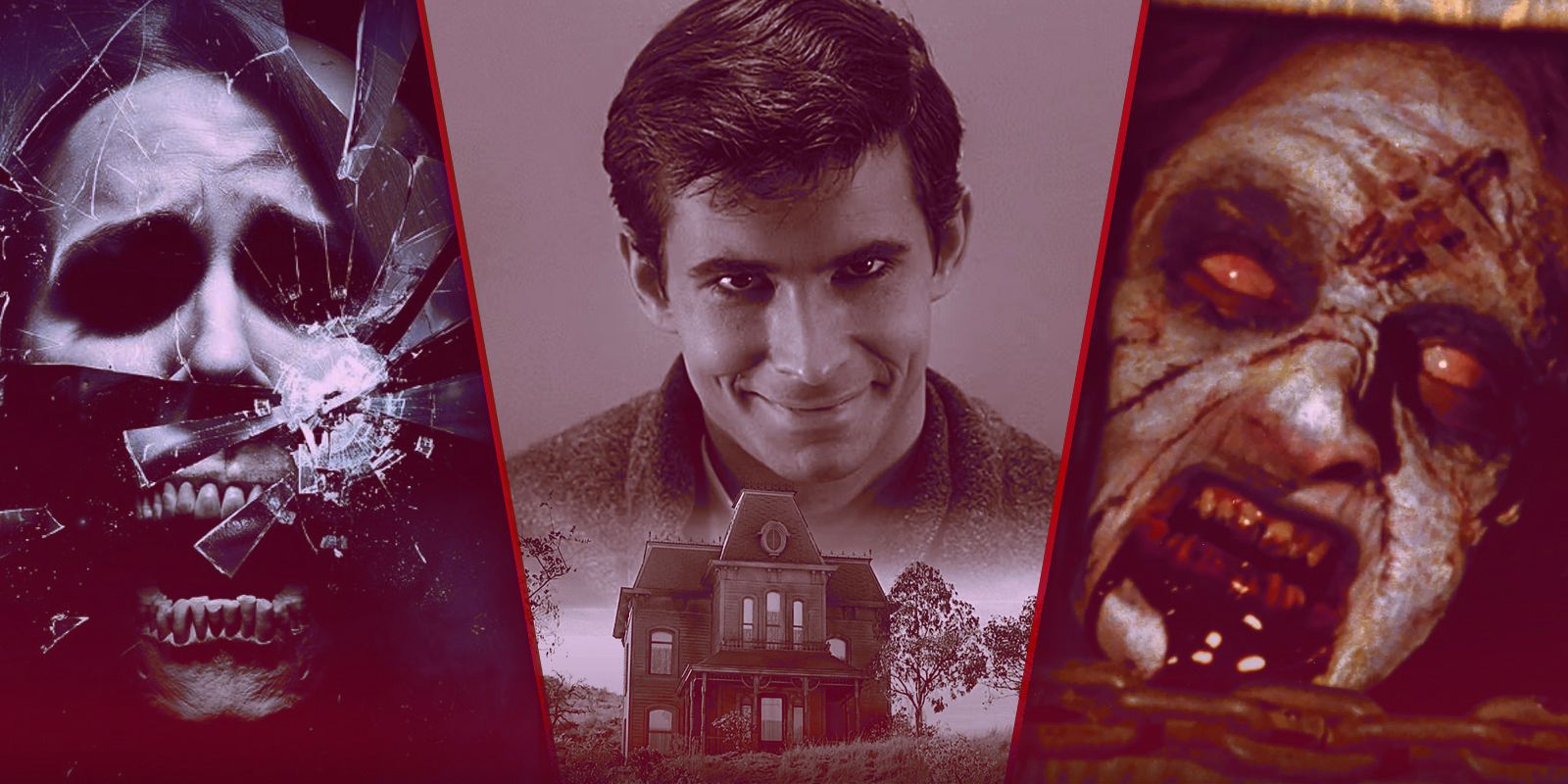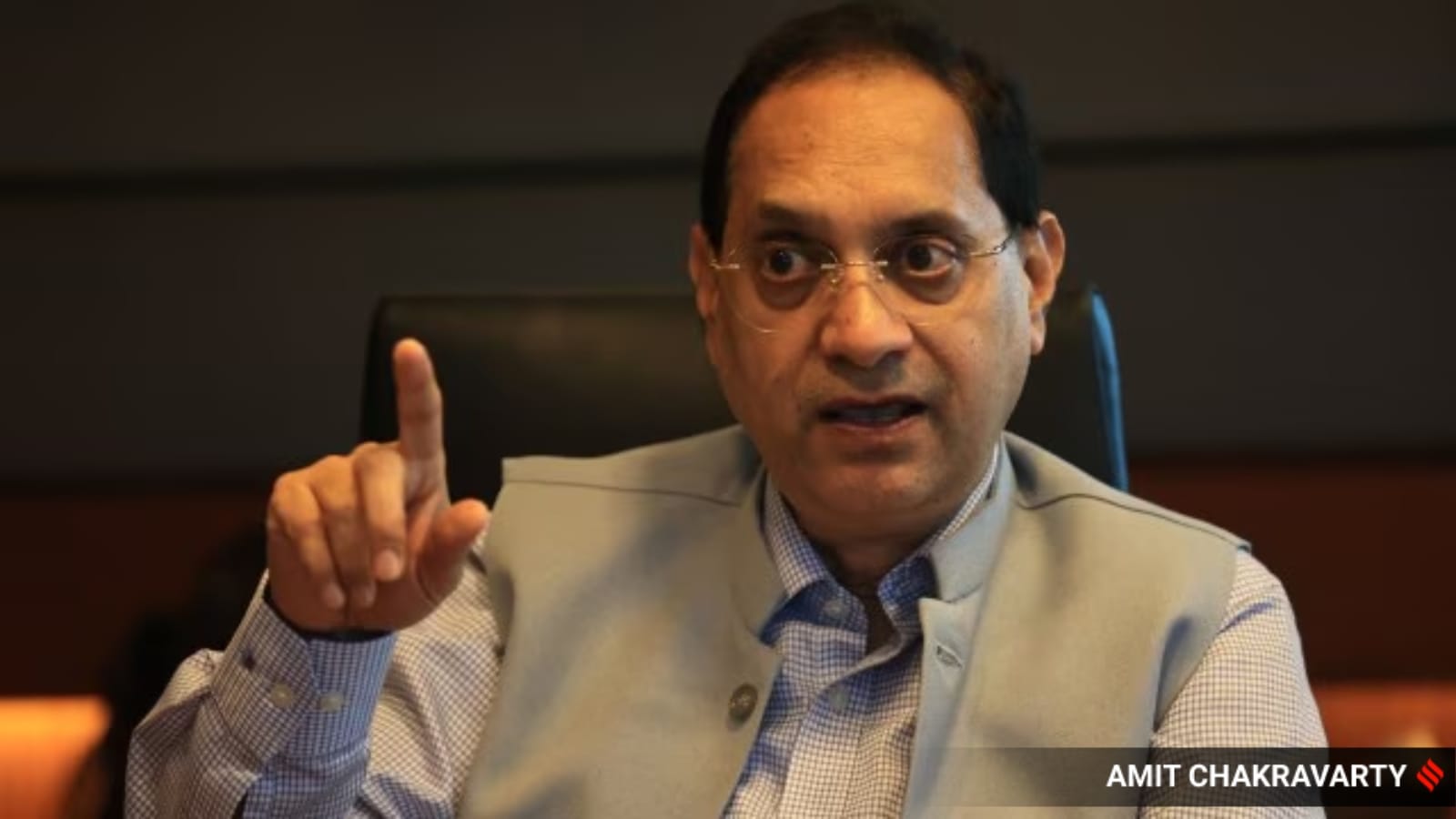Among the most popular genres in film history, horror movies can intimately engage with viewers thanks to creepy narratives, terrifying villains and exceptional filmmaking that frames each scare properly. Whether elevated by fan discussion or efficient studio handling, many horror films have created highly successful franchises and maintained a pop-cultural legacy. Likewise, some recognizable horror movie franchises have a lot more to offer audiences thanks to clever execution across multiple different movies.
Emboldened by artistic freedom combined with clever writing, many smartly made horror franchises can challenge moviegoers while evoking new techniques in entertainment that, no matter what era in the horror movie zeitgeist, have ensured a franchise’s impact in the genre’s diverse landscape.
Analyzing a disturbed killer with marvelous craftsmanship, Alfred Hitchcock’s 1960 horror feature Psycho paved the way for many horror films with its twisted story and character study surrounding hotel proprietor, Norman Bates. Growing into a multimedia franchise with several movie sequels and a TV series, Psycho’s relationship to digging deep into its central character’s psyche has continually fascinated viewers over the years. Layered with complexity, Norman Bates has the cache to scare audiences while leaving fans curious about his motives.
Elevated thanks to actor Anthony Perkins, Norman Bates’ troubled life across the Psycho series reflects a desperate need for control despite the character’s primal urges, highlighting a complicated figure. Similarly, with most modern true crime media, Psycho’s iconography is imprinted onto a generation who can look to Norman Bates as one of the first recognizable villains inspired by a real-life killer.
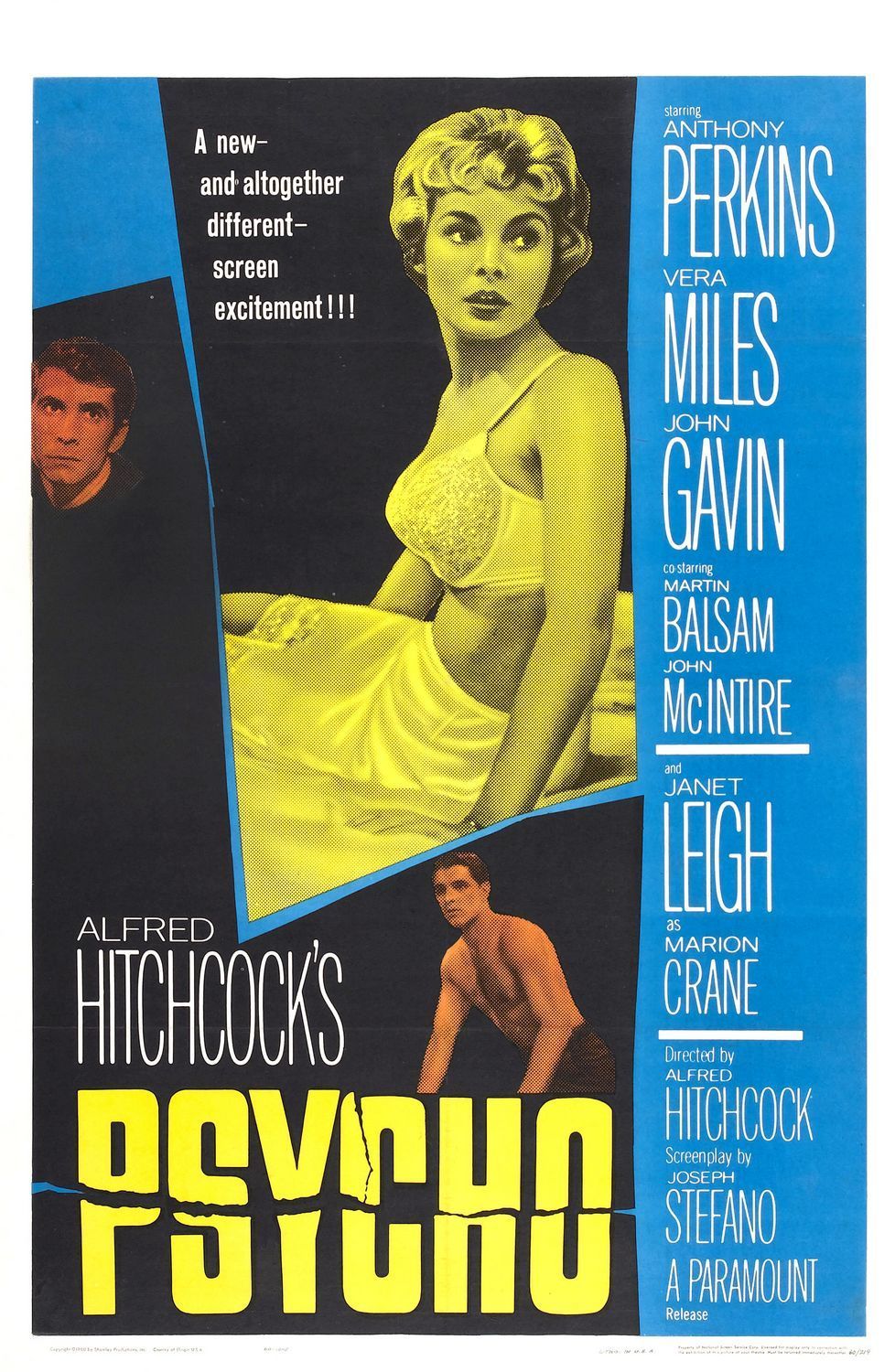
Psycho
- September 8, 1960
- 109 minutes
A Phoenix secretary embezzles $40,000 from her employer's client, goes on the run and checks into a remote motel run by a young man under the domination of his mother.
- Alfred Hitchcock
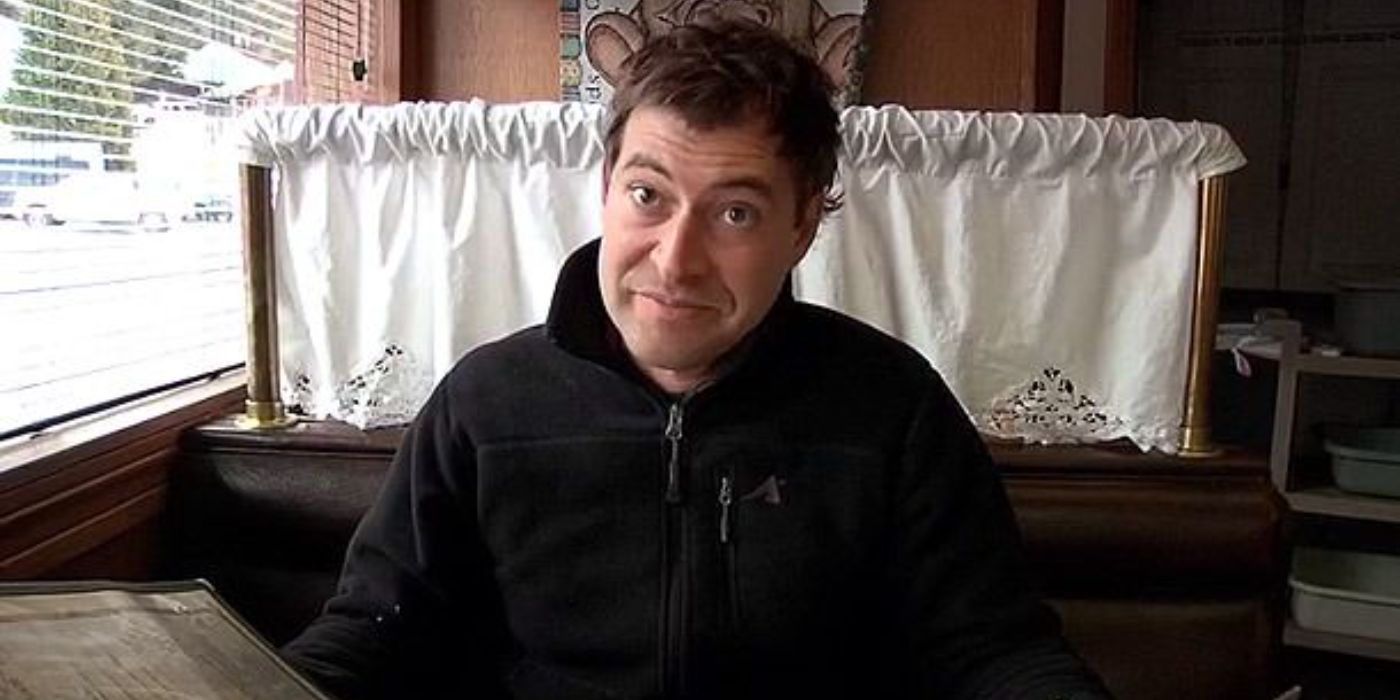
Turning the tables on moviegoers with inventive storytelling, Patrick Brice’s 2014 found-footage psychological horror flick Creep stars an eccentric serial killer, Josef, played by Mark Duplass, whose effective efforts in scaring his victims mirror the same response from the people watching the film. Stretching out into a multifaceted franchise within the found footage horror subgenre, Creep pulls out all the stops to haunt viewers anxiously anticipating what Josef will do next with his mind games.
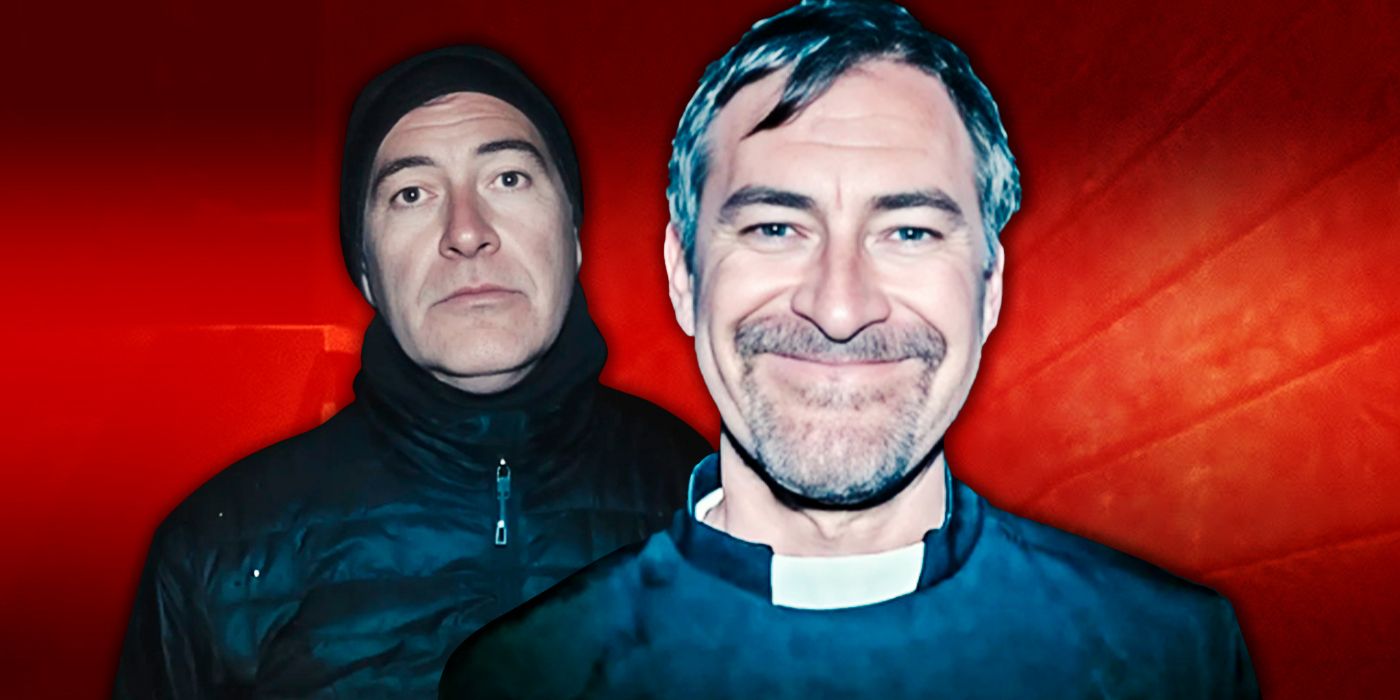
Related
Shudder's TV Spinoff of Acclaimed Horror Movie Series Gets Renewed for Season 2
Shudder has found success with bringing the horror movie series to the small screen.
Framed with an almost complete first-person perspective, the series’ visuals drive home the expertly paced frights. Antagonizing innocent people as an experiment and for personal amusement, Josef reflects the true sickening aspects of found footage horror films, in that his realistically dark portrayal could very well exist in real life. Using pointed violence to further shock audiences equally details modern media’s obsession with entertainment and crime stories.
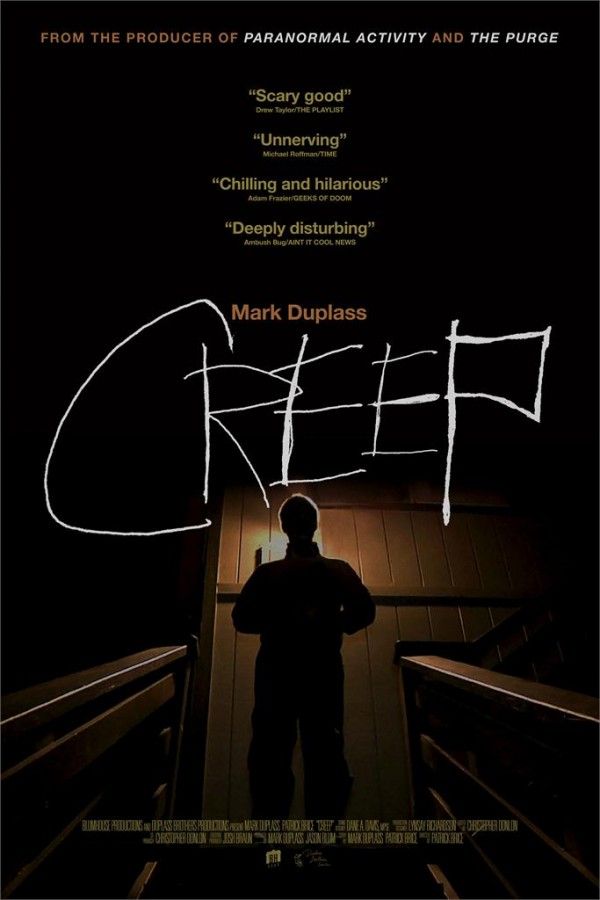
Creep
- June 23, 2015
- 77 minutes

Changing the scope of violence in horror films efficiently, James Wan and Leigh Whannell’s hugely successful Saw franchise has become a staple of gory horror movies that both visually disturb and mentally manipulate audiences. Primarily driven by the actions of serial killer John “Jigsaw” Kramer, played by Tobin Bell, each feature obsessively reiterates the murderer’s ideas of survival by testing his victims’ will, while having an underlying theme of existential dread that lingers with viewers.
Being a flawed morality tale, the franchise acts as a mix of entertainment and thought-provoking storytelling that incorporates sharp filmmaking to bring these facets to life. Still permeating pop culture in the 21st century, the franchise has yet to slow down and can still present new forms of cinematic torture in a believably gruesome fashion.
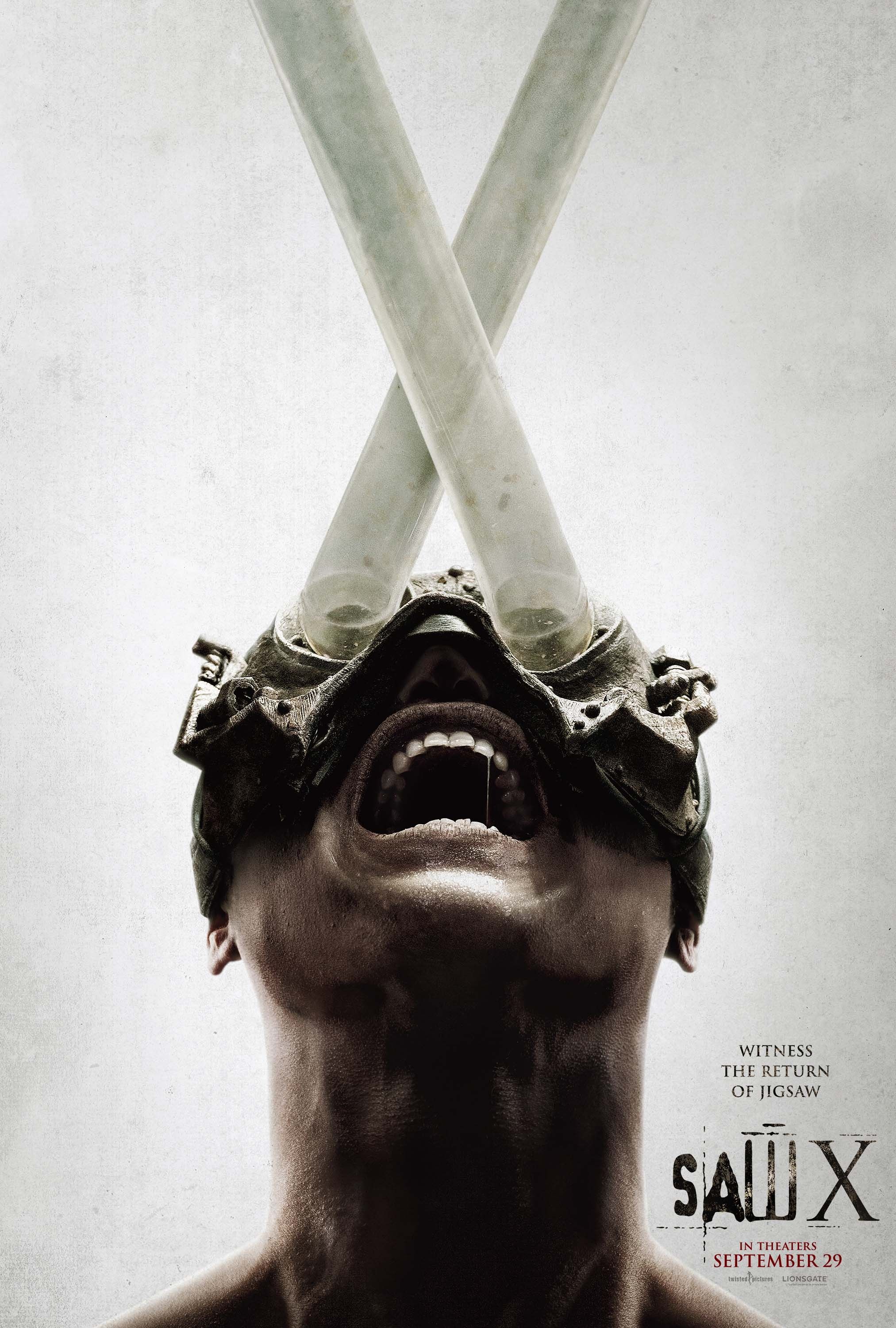
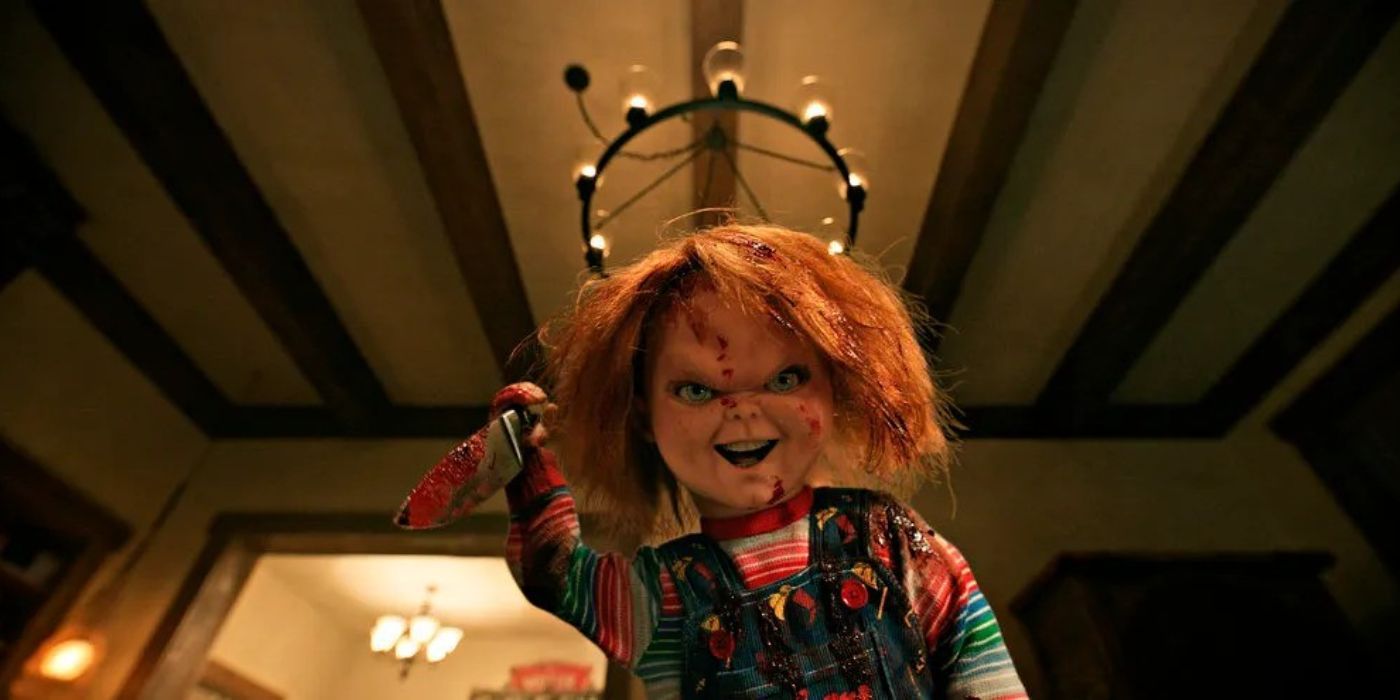
Packed with over-the-top bloodshed and a darkly comical tone, Don Mancini’s slasher franchise Child’s Play regales fans with the complicated history of Charles Lee Ray a.k.a. Chucky, voiced by Brad Dourif, where the infamous serial killer doll’s ability to conjure terror and grim laughs still excites viewers today. Extending a mostly consistent linear narrative across many films and one TV show, the franchise finds new ways of engrossing audiences while upping the ante with ridiculous humor or unique kills.
Transitioning into campy material that doesn’t take itself so seriously, the franchise’s horror roots are still kept intact, though it embodies a somewhat meta atmosphere during its later iterations that essentially bridges the gap between its earliest fans and younger admirers who’ve come to expect a more self-aware outlook in moviemaking.
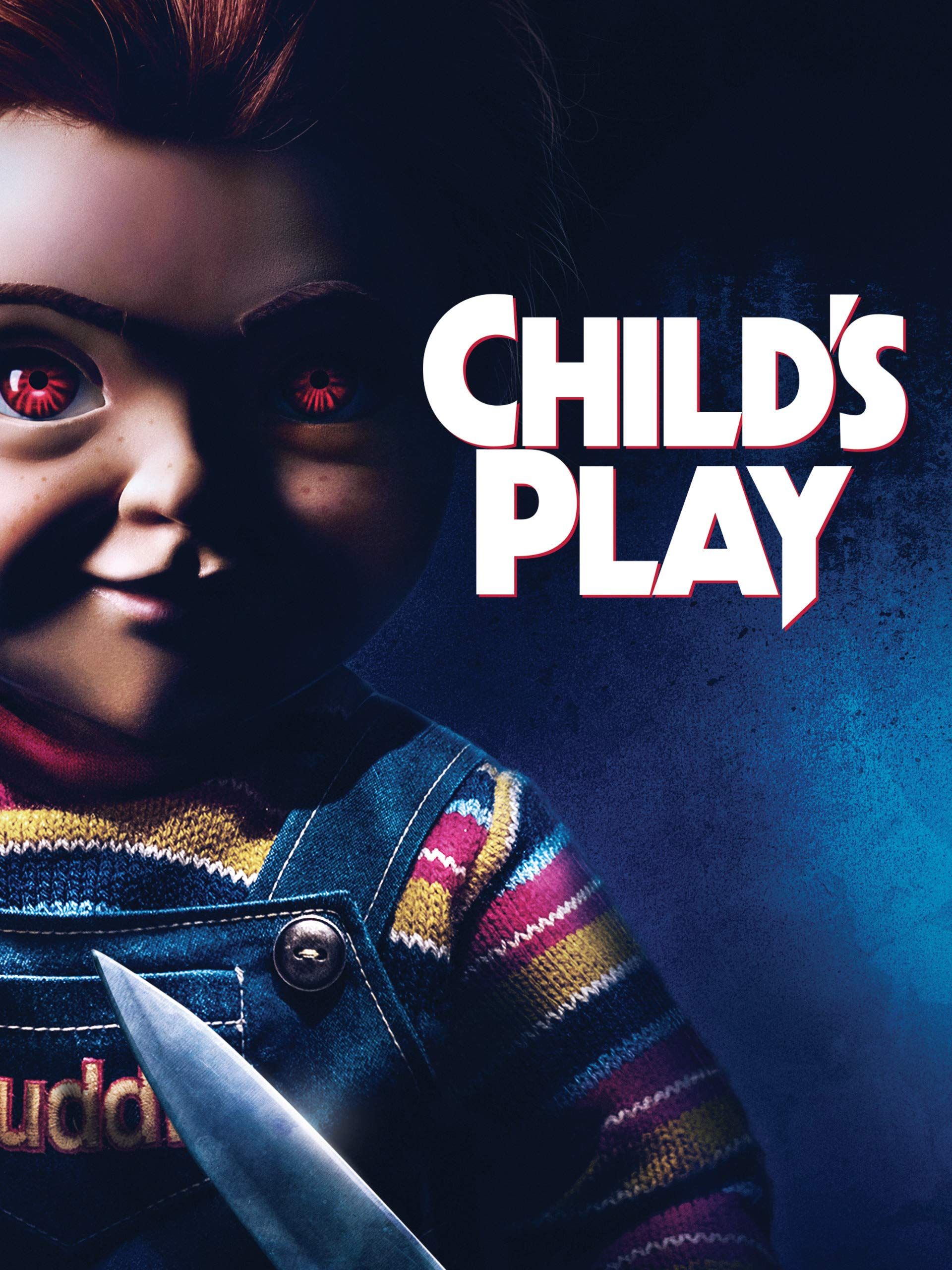
Child's Play
The franchise that began with a struggling single mother unknowingly gifting her son a doll imbued with a serial killer's consciousness in 1988 has gone on to produce multiple films, a television series, comics, video games, and amusement park attractions.
- Don Mancini
- Child's Play
- Child's Play
- Chucky
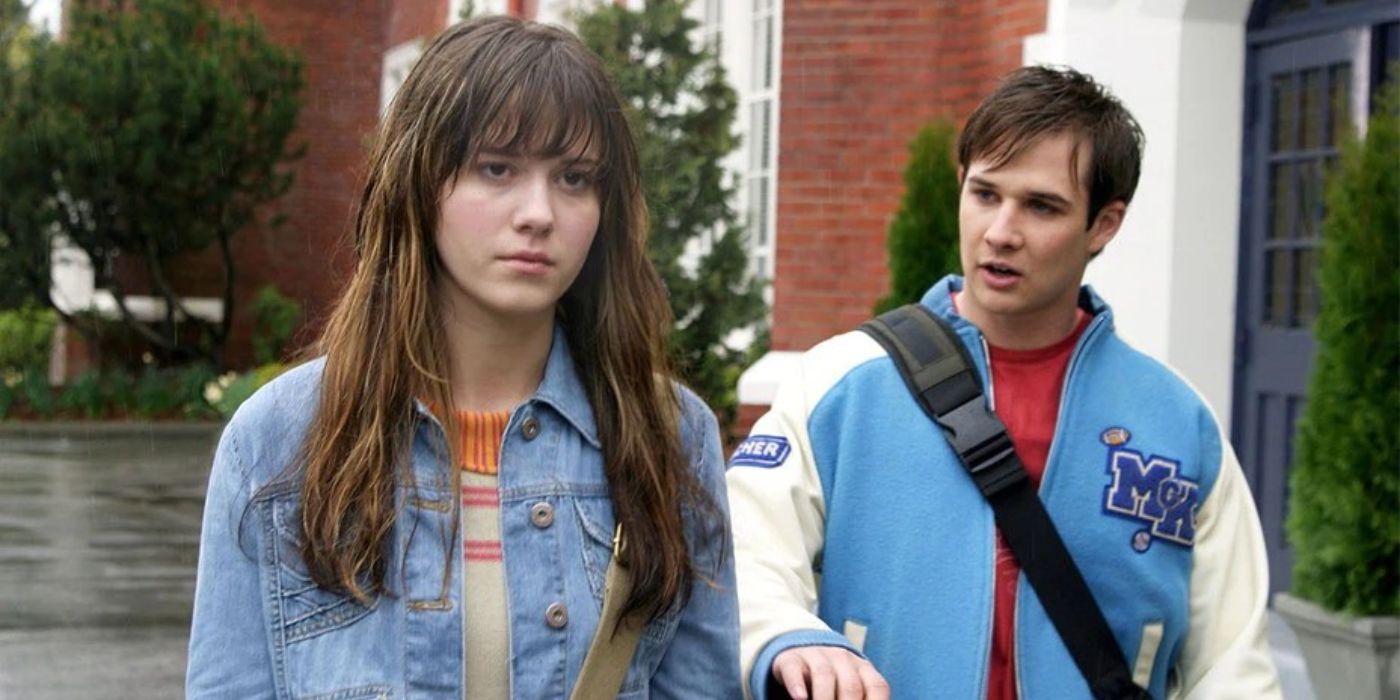
Reinventing the nature of horror movies with its all-powerful antagonist, the 2000 supernatural horror feature Final Destination spawned a spellbinding series of films dedicated to exploring the concept of death with a rotating list of expendable characters. Creatively charged with its looming Rube Goldberg machine-like death sequences, each movie in the franchise dazzles fans with excellent filmmaking. Mysterious with its pacing, the series’ singular narrative streak also collectively toys with viewers whenever a potential kill is about to occur on screen.
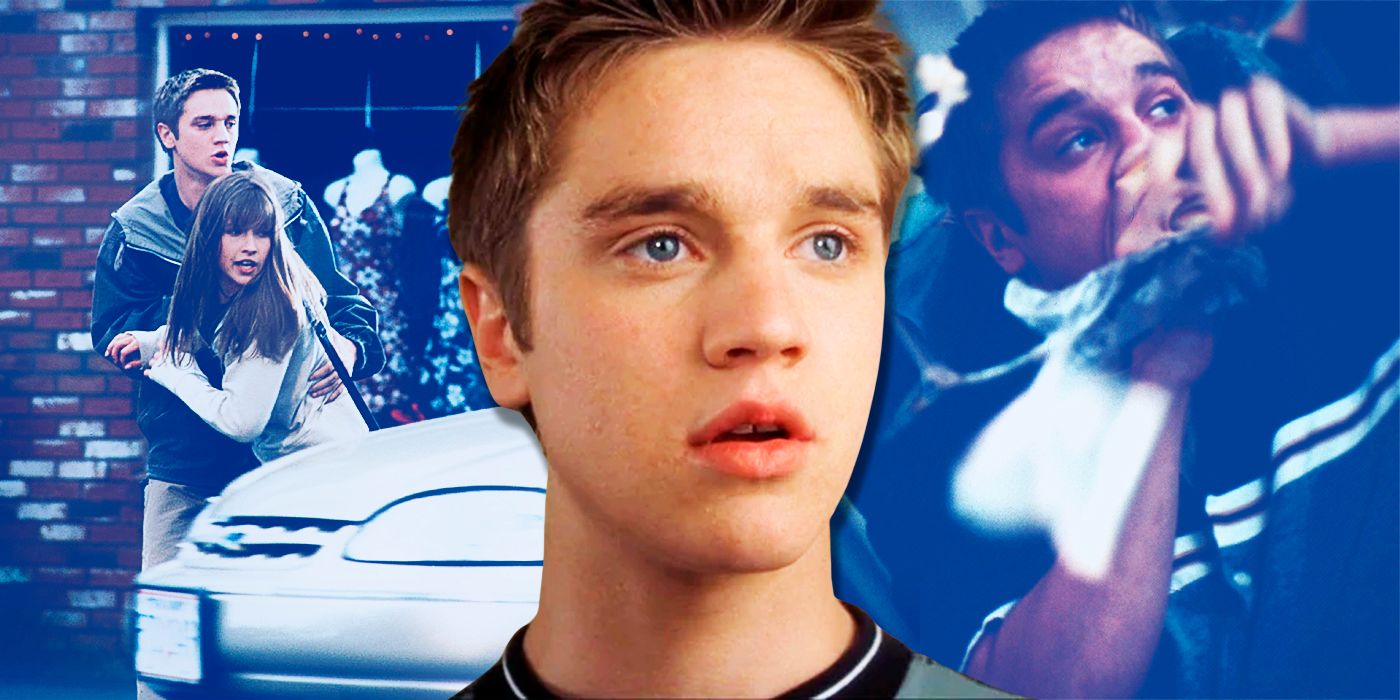
Related
25 Years Ago, An Iconic Horror Franchise Was Born (& Its Debut Film Still Holds Up Today)
The first Final Destination movie released in 2000 is a classic for a reason, serving as the perfect start to an iconic horror franchise.
Considering how the horror genre traditionally relies on a spooky villain to execute victims across a film’s runtime, the franchise’s basic thoroughline of death snatching away the lives of characters who’ve cheated their demise, acts as the primal source of investment for audiences in every single film.
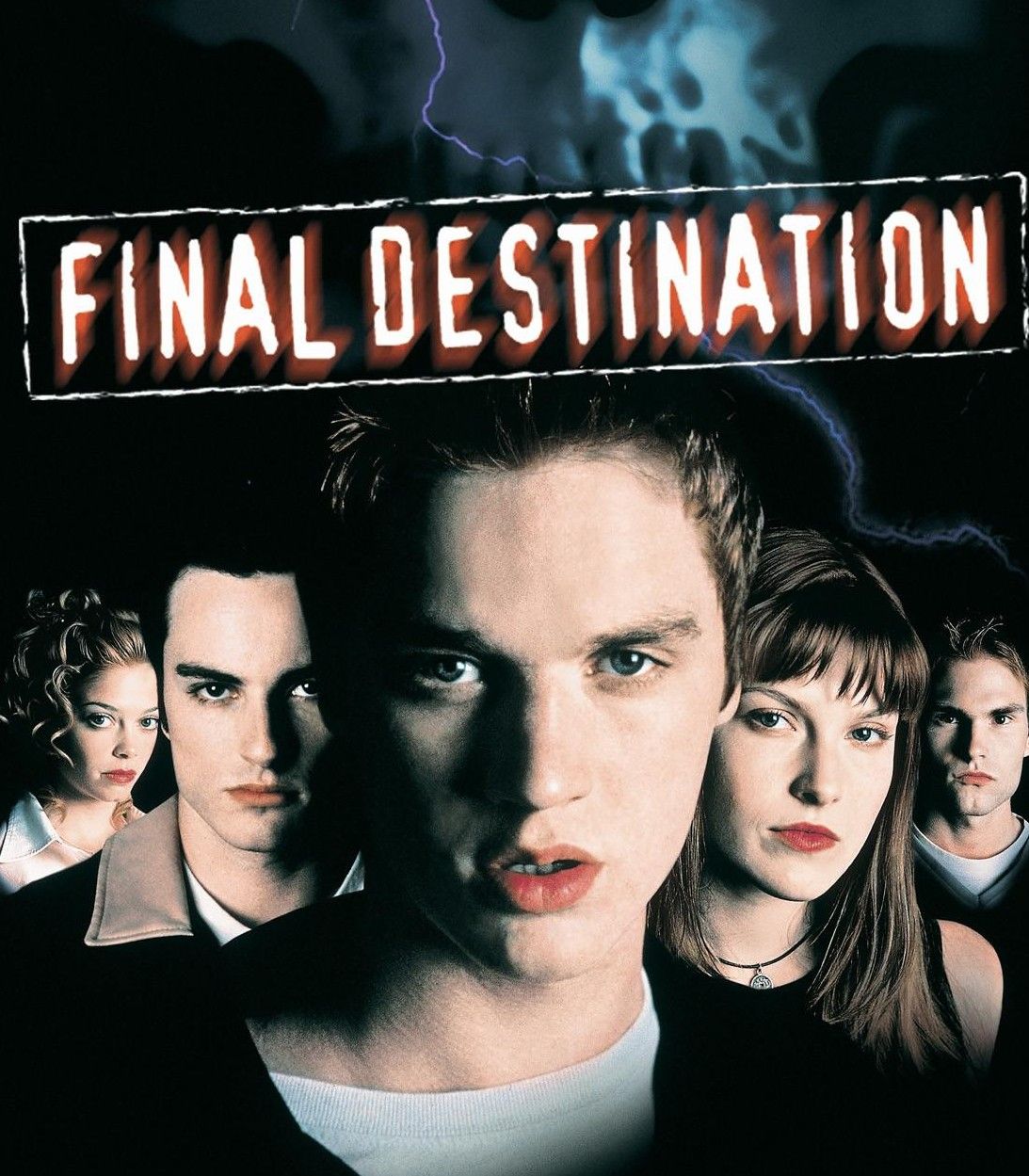
Final Destination
Final Destination is an American horror franchise that includes five films, two comic books, and nine novels. It is based on an unproduced spec script by Jeffrey Reddick, originally written for The X-Files television series.
Fostering one of the most recognizable villains in all of horror fiction, Wes Craven’s 1984 supernatural slasher flick A Nightmare on Elm Street highlights a chilling performance by Robert Englund as the mystical child murderer, Freddy Krueger, where the darkly comedic and frightening antagonist shines across several films. Accurately labeled as sadistic and pure evil, Freddy Krueger’s reign of terror reveals a whole new scale of horror violence, where the killer’s demonic mind-altering powers leave viewers terrified.
As the Nightmare on Elm Street saga relies on Freddy Krueger’s desire to murder victims for fun, the character’s escalating cinematic style showcases the range in which Freddy Krueger can commit murder. Increasingly inventive, each film in the series works to outmatch the last and ensure that Freddy Krueger always engages with moviegoers.
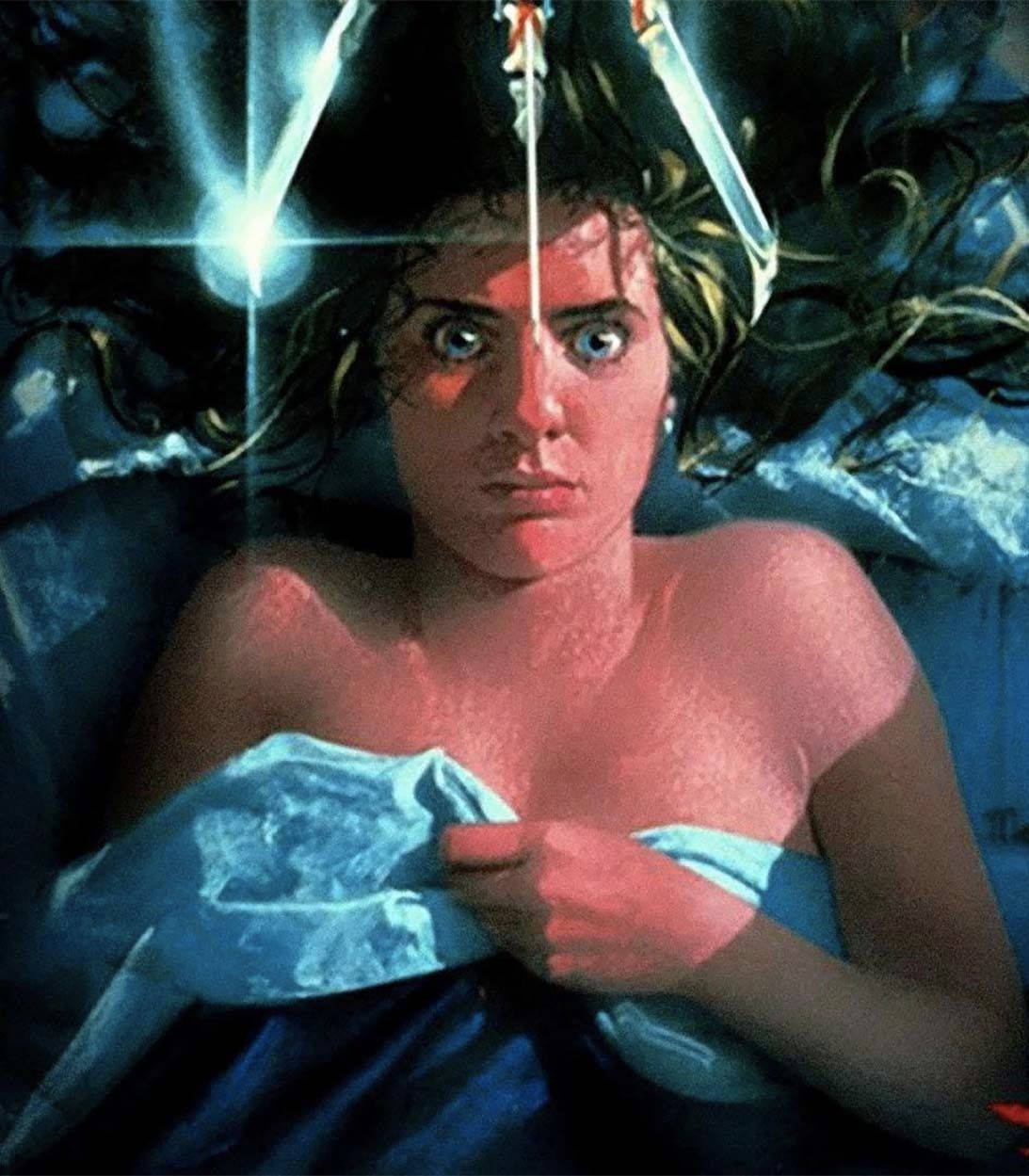
A Nightmare on Elm Street
The third-popular and oldest slasher franchise made by New Line Cinema since 1984 which actually, in 2003, they made a collaboration with Paramount to make Freddy vs. Jason.
- Wes Craven
- A Nightmare on Elm Street
- A Nightmare on Elm Street Reboot #2
- Freddy's Nightmares
- Heather Langenkamp, Johnny Depp, Robert Englund, Mark Patton, Patricia Arquette, Laurence Fishburne, Lisa Wilcox, Danny Hassel
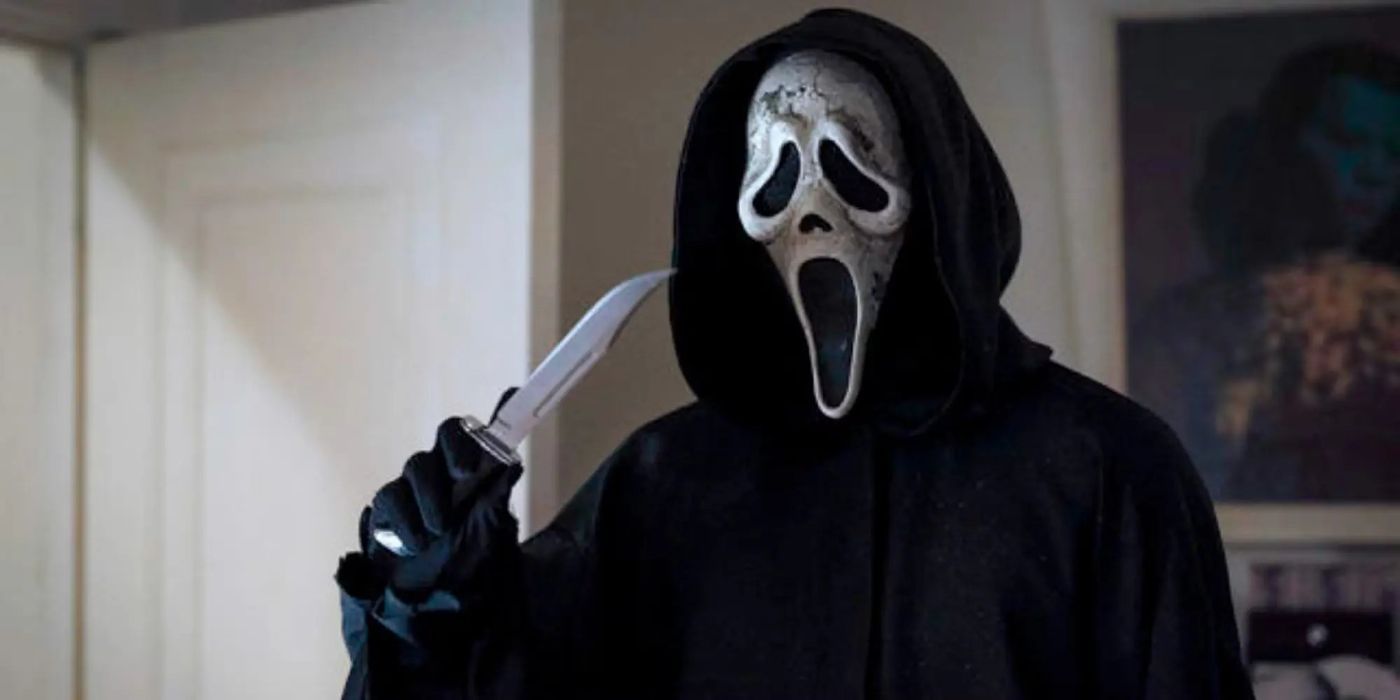
Taking a stab at the horror genre from its very first outing, Wes Craven’s slasher franchise Scream accessed the vital astuteness of horror aficionados and turned in a series of films that heavily rely on satire to enhance the thrills and comedic moments within each story. Amidst the formulaic big-budgeted studio horror movies, the Scream franchise stands above most other series thanks to its sharp wit and ability to tweak character drama for a harrowing mystery plot.
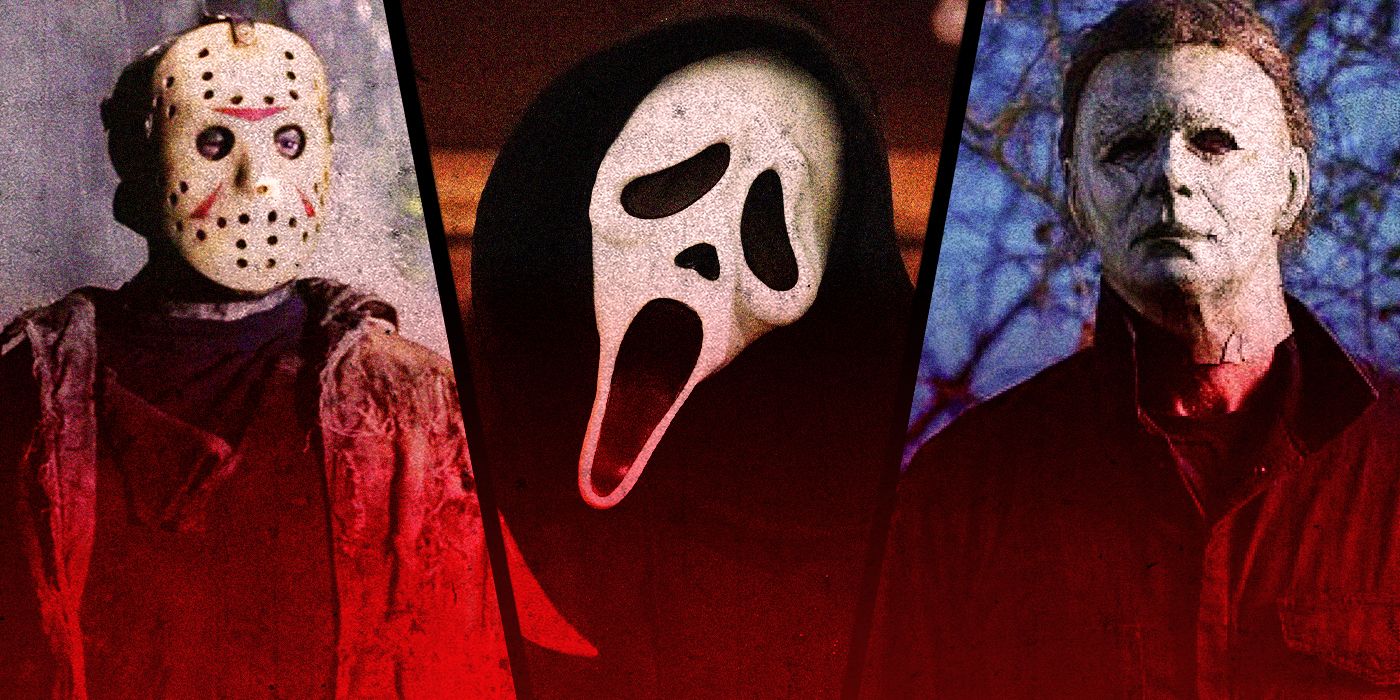
Related
15 Scariest Masked Movie Killers, Ranked
From Michael Myers to Leatherface, masked killers have made up some of the most terrifying horror movie villains of all time.
Notorious for displaying the Ghostface killer as a lasting villain, the ambiguous murderer can be embodied by anyone and, therefore, could continue to carry on the franchise for as long as possible. With the horror genre always fluctuating in pop culture, the Scream series is a necessary form of critique and respect that grows with the genre.
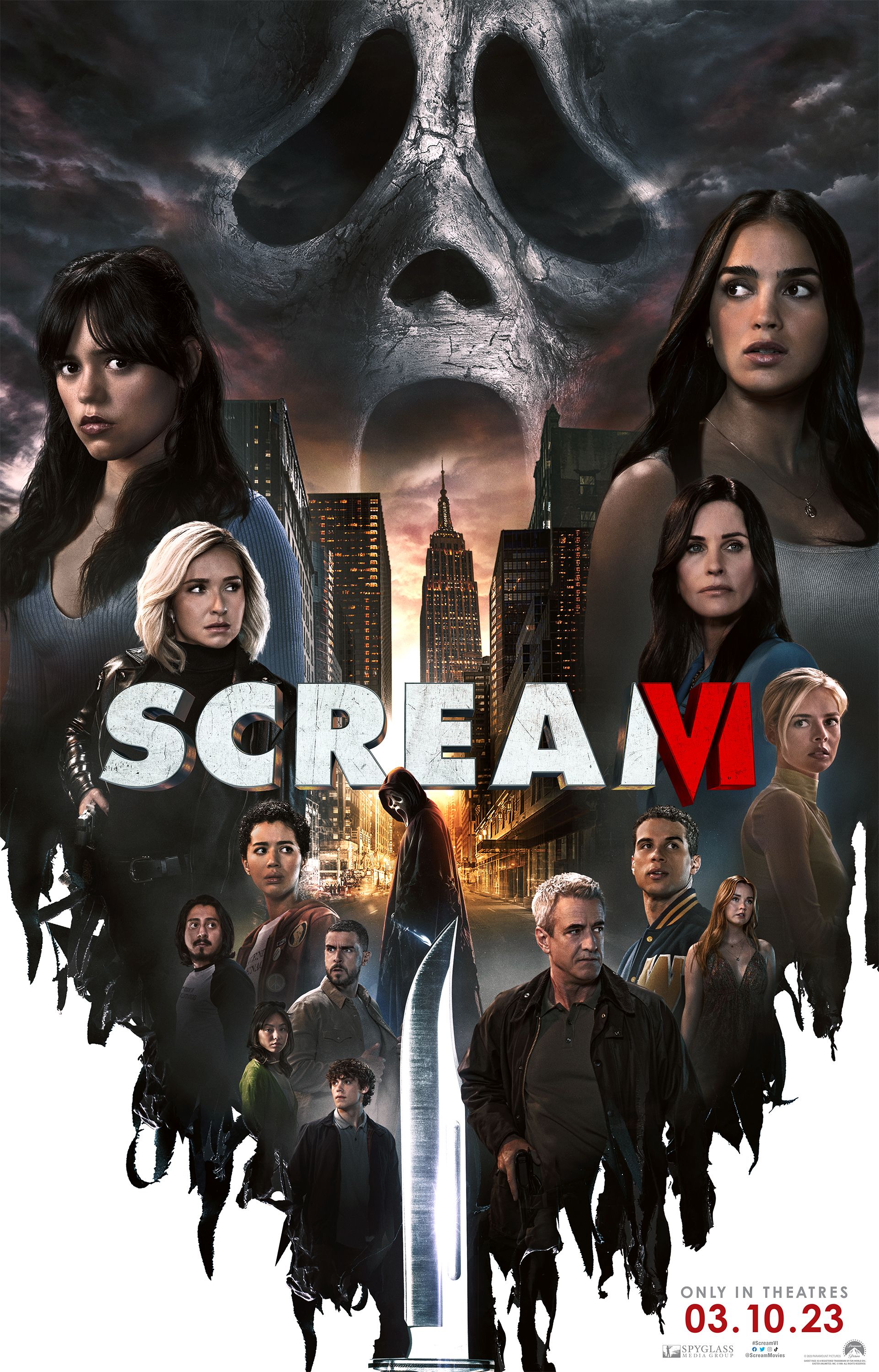
Scream
Scream is an American murder mystery and slasher franchise that includes six films, a television series, merchandise, and games. The first four films were directed by Wes Craven,
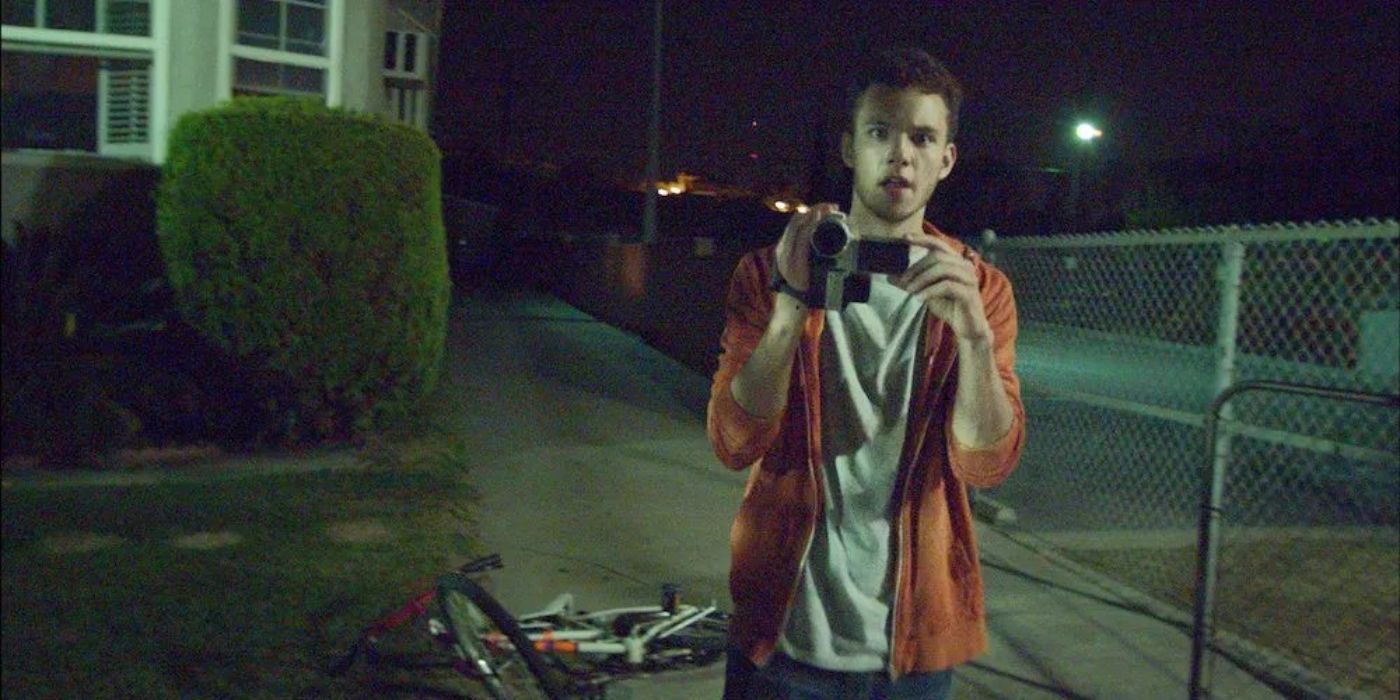
Sparking a wide variety of horror escapades within many films, the horror anthology franchise V/H/S diversifies its storytelling by producing an anthology structure to surprise viewers at every turn. Offering a chance to elevate a rotating collection of young filmmakers to craft a new horror experience, the eclectic V/H/S series allows for unbridled artistic expression compared to other recent horror movies.
Despite some mixed responses to each specific film, the franchise still has the potential to re-imagine what can be done in the horror genre in the foreseeable future. Delivering a distinct visual language while adapting to burgeoning film technology, the V/H/S franchise should sustain itself with new horror stories that shake up fan expectations and revel in the endless possibilities of conjuring scares.
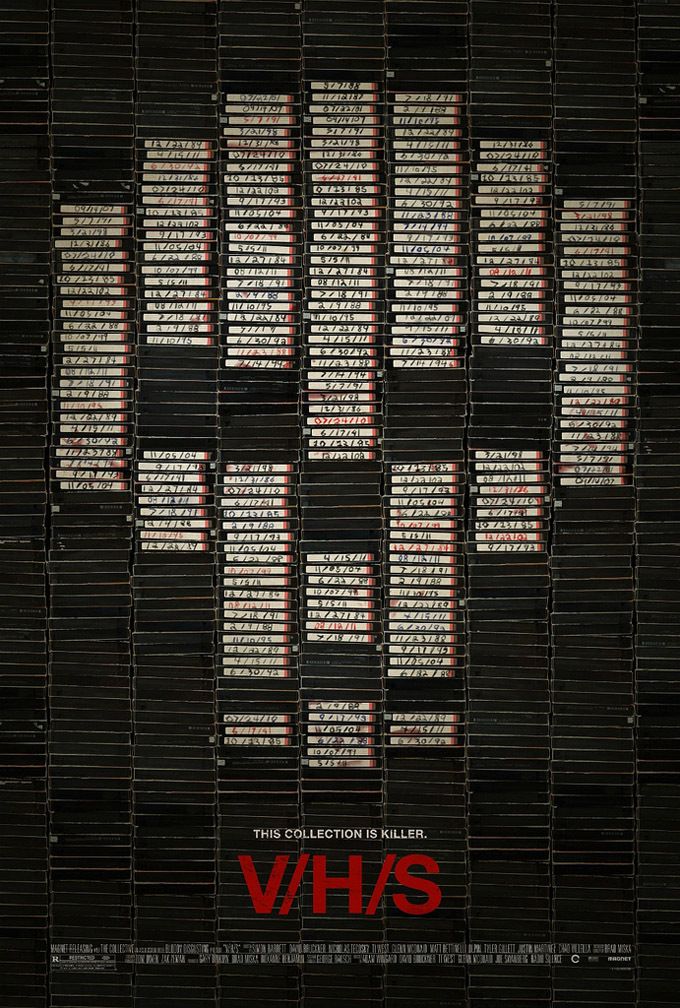
V/H/S
V/H/S is a horror anthology franchise centering on possessive VHS tapes.
- V/H/S
- V/H/S/99
- Simon Barrett, Hannah Fierman, Adam Wingard, Justin Welborn
V/H/S is a horror anthology franchise centering on possessive VHS tapes.
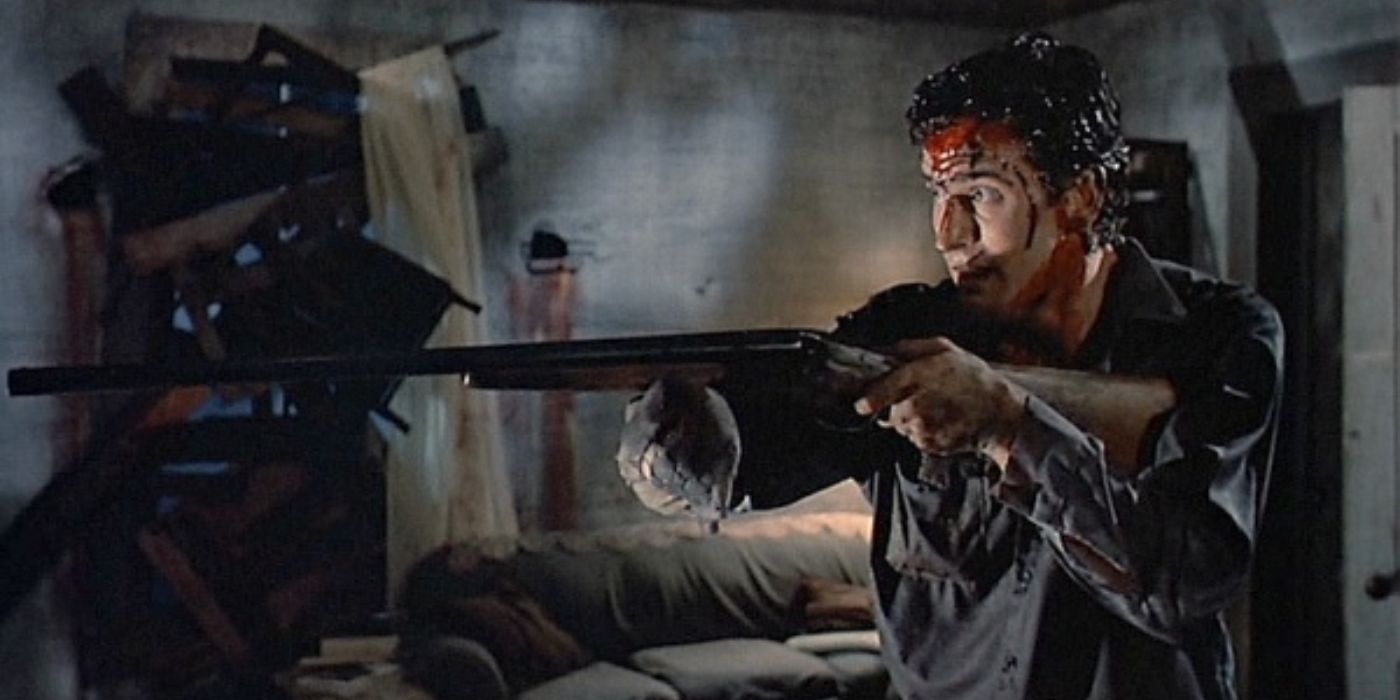
Whisking fans into a lively universe filled with horror, action and comedy, Sam Raimi’s supernatural horror franchise Evil Dead persisted over the years thanks to the series’ consistency in shocking moviegoers while prioritizing strong moviemaking. Innovating various forms of cinematography, editing, practical effects, sound design and writing, the original Evil Dead trilogy has helped inspire many horror films since being initially released.
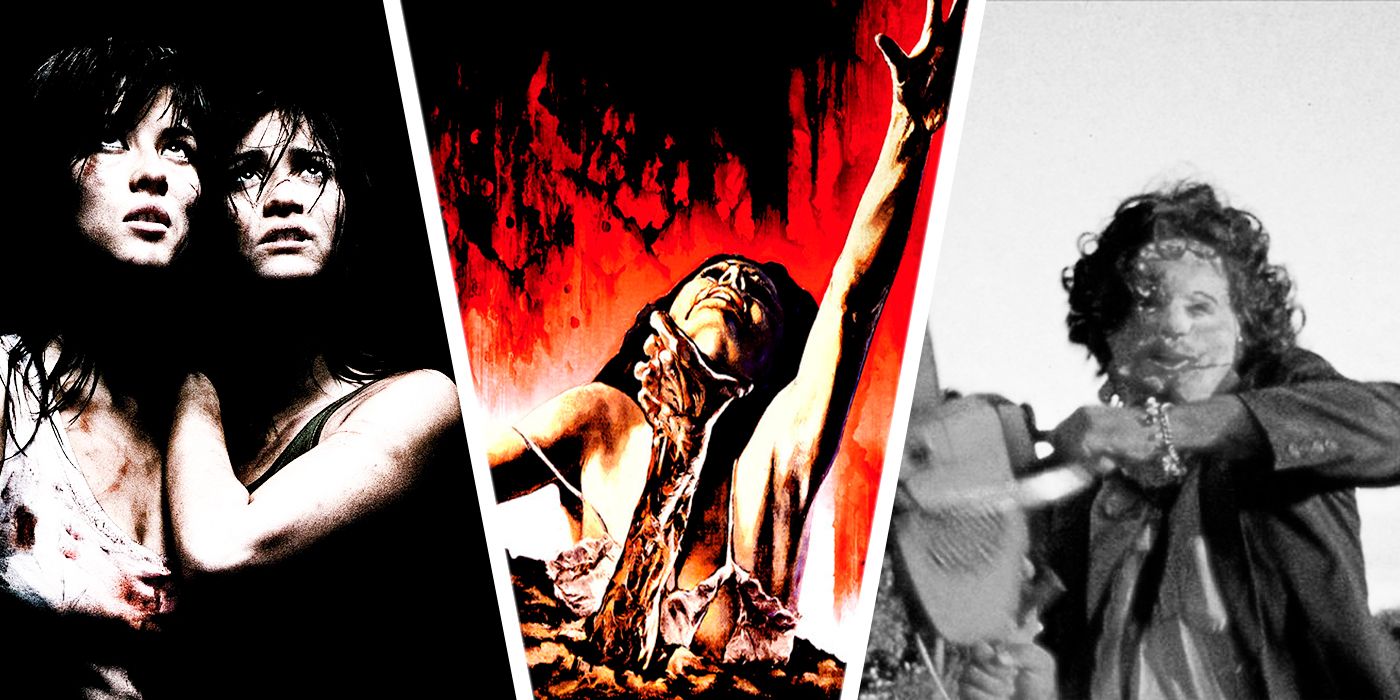
Related
25 Horror Movies So Controversial They Got Banned
Horror films are categorized as such for good reason, but sometimes they take the horrific so far, they wind up banned from cinemas.
Manufacturing memorable characters in the franchise, Evil Dead’s central figure rises to the challenge as a protagonist. Primarily following the adventures of Ash Williams, played by Bruce Campbell, the bumbling hero wins the hearts of audiences thanks to his grit, humor and ability to destroy Deadites. Acquiring a deserved spot as a horror icon, Ash Williams’ feats will live on in infamy as a singular warrior in the horror genre.
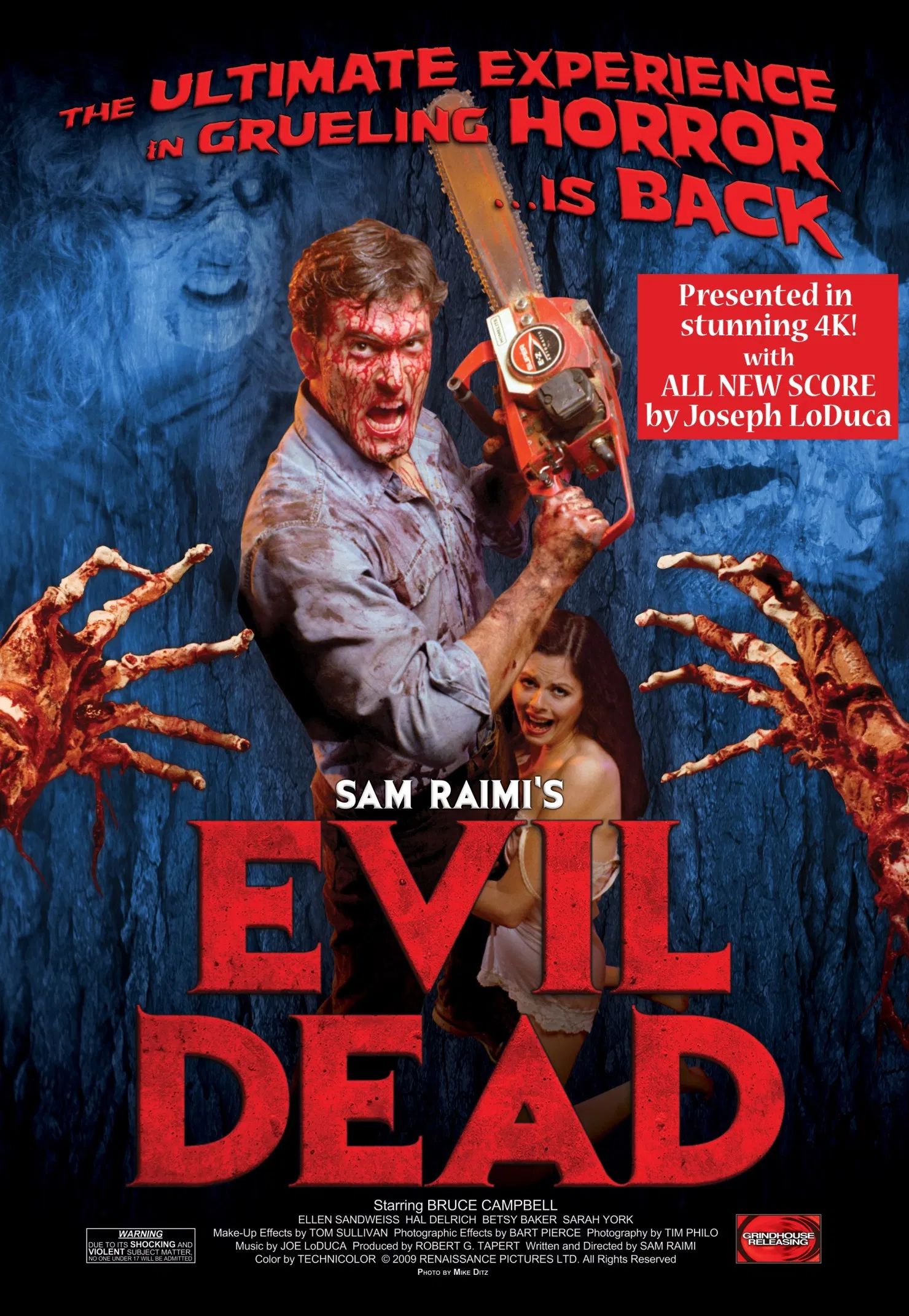
Evil Dead
Evil Dead is an American comedy horror franchise created by Sam Raimi consisting of five feature films and a television series. The series originally revolves around the grimoire the Necronomicon Ex-Mortis, an ancient Sumerian text that wreaks havoc upon a group of cabin inhabitants in a wooded area in Tennessee.
- The Evil Dead
- Evil Dead Rise
- Bruce Campbell, Embeth Davidtz, Jane Levy, Shiloh Fernandez, Jessica Lucas, Lily Sullivan, Alyssa Sutherland, Morgan Davies
- Created by
- Sam Raimi
- First TV Show
- Ash Vs. Evil Dead
- Video Game(s)
- Evil Dead: The Game
Setting the stage for many similar films of its kind, Ishirō Honda’s classic 1954 Japanese epic kaiju feature Godzilla exponentially expanded into the largest movie monster franchise in history that, in more ways than one, crafted a legendary horror creature. Able to be adjusted to most movie genres with a blockbuster flair, the Godzilla character works on several levels in entertainment and owes its achievements to the original film’s sci-fi horror tone.
Representative of many themes and allegories, the Godzilla series oscillates with Japanese culture and general media. Organically used as an analogy for the threat of nuclear power, before being turned into an over-the-top savior or a menacing force of nature, the Godzilla franchise has taken dozens of turns throughout its storied past. Easily still referred to as the most intimidating cinematic monster ever conceived, the beloved character has yet to fall away in the public eye, nor lose his metaphorical influence.
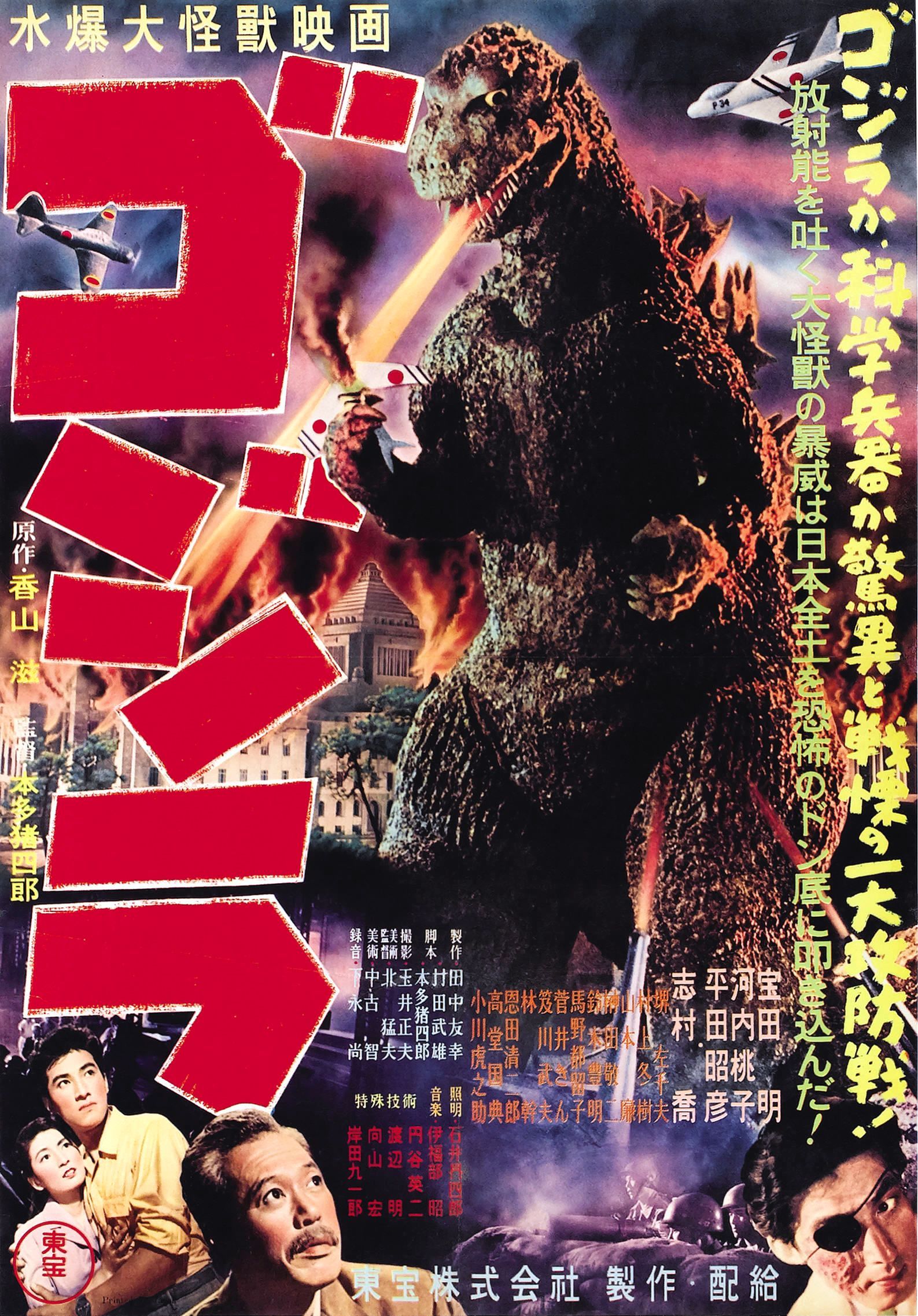
Godzilla
The Godzilla franchise follows Japan's Godzilla, a monster that is both enemy and friend depending upon the work he appears in.
